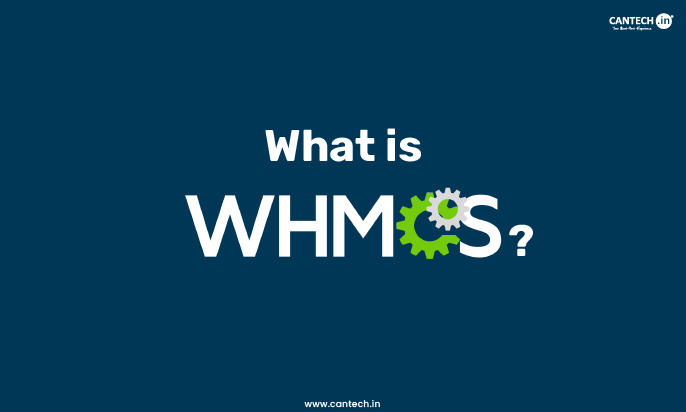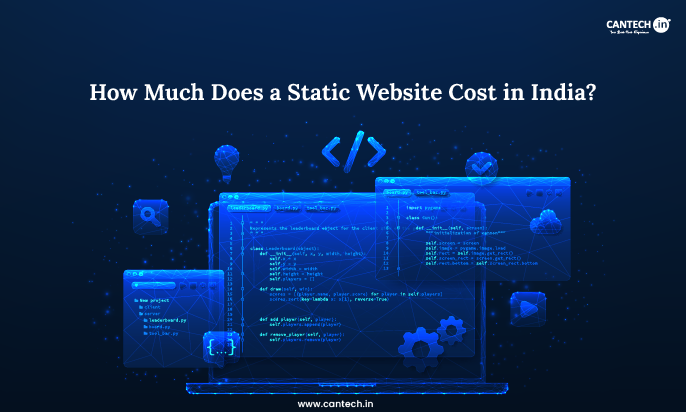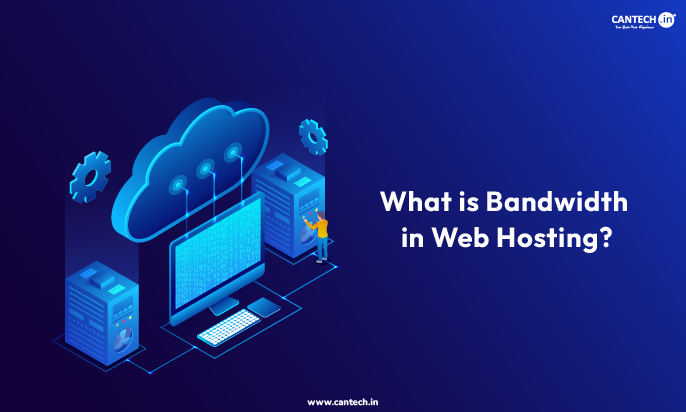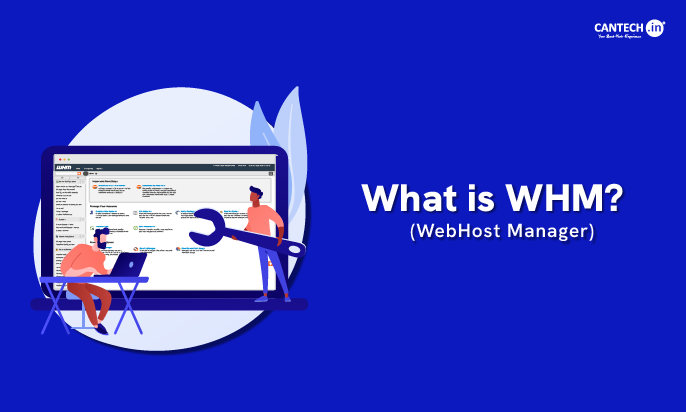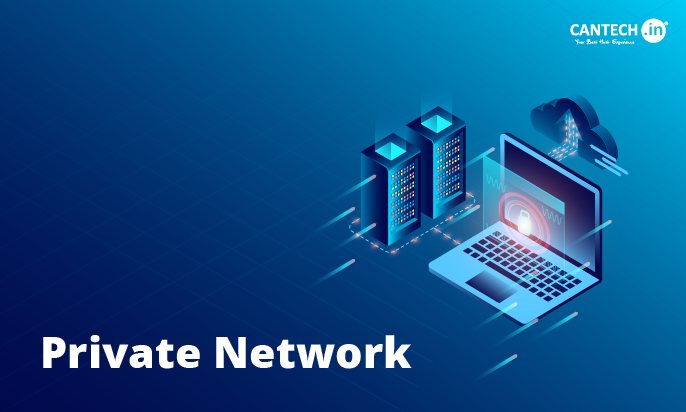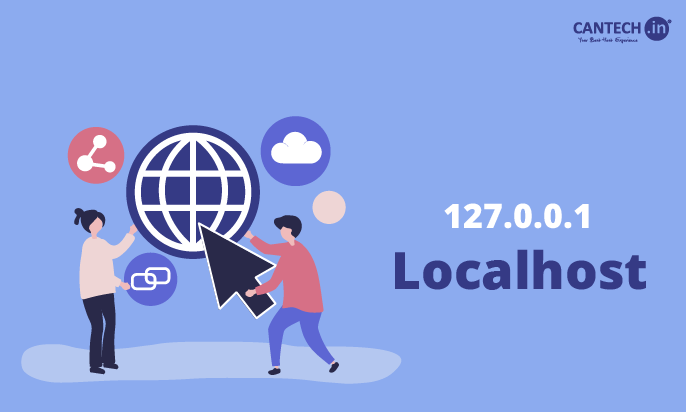Introduction
Hosting servers in-house may be difficult for many businesses because of limited space, power, and cooling resources. These limitations can further result in performance issues and security risks. Moreover, building and maintaining a dedicated data center also proves to be very expensive and takes away the company’s focus from growth and goals. Furthermore, the business growth results in increasing demands from their servers otherwise it affects website speed and customer satisfaction.
This article gives the solution in the form of the best alternative ‘colocation’ in which you can own your server but do not have to worry about its housing and facilities. Colocation offers secure, scalable, and cost-effective facilities for server hosting in professional data centers. We will discuss all the important aspects focusing on ‘what is colocation’; its working, benefits, comparison with cloud, and more.
What is Colocation?
Colocation means the businesses place their own servers and essential hardware in a rented space within a data center owned or managed by a third-party colocation provider.
To understand how colocation differs from other hosting solutions, check out our comparison on Managed Hosting vs Colocation. This setup provides businesses with a reliable infrastructure and it is often superior to what they could manage on their premises. Thus, it comes with better performance, security, and reliability with various types of colocation facilities listed below –
Colocation Facilities
‘What is colocation?’ The concept can be easily understood with the offerings that it normally includes –
- Colocation ensures high availability of their website or application with nearly 100% uptime through a service level agreement (SLA).
- The operational costs for services such as power, cooling, bandwidth, security, and communication are to be shared with other tenants.
- The third-party colocation provider offers various facilities like racks, cabinets, cages, or even entire rooms for the colocation hosting of servers.
- Third-party data centers handle all aspects of server maintenance and infrastructure management. So, businesses need not invest in these areas.
- Colocation services save the capital for businesses. Also, they can focus on other essential operations to grow their brand value.
What is a Colocation Data Center?
A colocation data center is a facility or a place that provides a secure and reliable environment for your servers with the latest technology, advanced IT infrastructure, and services for businesses.
- The colocation data center uses redundant power supplies to ensure uninterrupted operation.
- Advanced cooling systems maintain optimal temperature and prevent overheating.
- Security measures at the colocation data center include 24/7 monitoring, surveillance, and access control. Thus, the facility ensures your servers and data remain operational and protected at all times with 24/7 support.
Related: What is a Web Server?
How Does Colocation Work?
The below process ensures that businesses benefit from the expertise of colocation providers for optimal performance, security, and reliability. However, they must assess colocation providers by checking customer testimonials and referrals to ensure credibility and quality of services.
- Various types of colocation facilities provide businesses with dedicated server space, security features, and essential physical infrastructure to host their servers securely.
- Businesses or individuals can set up their servers in various configurations with available facilities such as racks, cages, or dedicated rooms. Hence, they must consider their specific needs like server rack space, power supply, IP addresses, and uplink ports before they select a colocation facility. Also, they can choose colocation centers with a global presence so that they can set up servers in different locations to enhance user experience for their audience.
- Reliable colocation providers allow them to pay only for the power they use (pay-per-kWh) so this hosting solution results in lower upfront costs. Also, this payment setup helps them optimize the data center’s power infrastructure and reduces long-term expenses.
- In general, the colocation providers offer basic data center-related facilities and monitoring. However, if there are any hardware issues then the company needs to intervene. Moreover, businesses can reduce the burden of server management and maintenance by outsourcing it to colocation service providers. Thus, they can further ensure smooth and reliable running of the server and minimal disruption to daily operations. They need not worry about onsite management and troubleshooting. Many colocation providers offer 24/7 technical support to maintain the data center and prevent power outages.
Colocation Features
Colocation services provide a range of features to enhance security, reliability, and efficiency for businesses looking to avail of colocation services. These features help them protect their data and infrastructure effectively and also enjoy the expertise of dedicated professionals while the ownership of the hardware remains with them.
Read more on ‘what is colocation’ in terms of its features –
Advanced Security
Colocation facilities offer advanced security measures at both physical and network levels that cannot be easily achieved by businesses on their own.
Cyber Protection
Businesses receive protection against cyber threats with the help of different network solutions provided by data center operators that are mostly in collaboration with third-party experts.
24/7 Monitoring & Controlled Access
On-site security guards and closed-circuit video surveillance.are available for 24/7/365 monitoring of the facility. Also, data center access is secure and controlled. Also, certain segregated areas have enhanced security for sensitive equipment.
Physical Safeguards
Colocation centers implement advanced flood and fire protection protocols to safeguard hardware from physical threats.
Digital Defense
Antivirus software, antispam solutions, firewalls, anti-DDoS measures, and VPN connections help protect against digital threats.
Optimal Cooling
Cooling systems like redundant HVAC systems and chiller configurations maintain optimal temperature levels to protect hardware.
Remote Assistance
Professional and certified technicians provide a ‘remote hands’ service to quickly resolve issues and ensure operational continuity.
Power Reliability
Backup generators and uninterruptible power supplies (UPS) guarantee power reliability. Various levels of redundancy are available depending on the facility.
Asset Monitoring
Intelligent monitoring systems are similar to having their own data center. They give tenants continuous visibility and control over their physical assets.
Easy Scalability
Most of the colocation providers offer easy scalability. So, businesses can adjust their capacity needs in response to changing demands without any delays
Dedicated Space
Colocation facilities provide dedicated space with racks, cabinets, cable trays, etc for IT hardware. Everything is continuously audited for reliability.
Benefits of Colocation Services
Various advantages of colocation services can improve the operational efficiency of businesses to a great extent. They provide robust infrastructure and technical support so that the companies can focus on growth and leave the data center server management to experts.

Read on to learn other advantages of collocation –
Ownership and Control
You own the servers and simply rent a place to host them. Thus, you have complete control over its configuration and settings as per your website or application needs.
Maintenance Relief
Businesses can outsource the server management and maintenance to colocation service providers. Thus, they can enable smooth servers and focus on other business operations without worrying about their servers.
Flexible Storage
Colocation services provide tailored solutions to meet specific business needs without heavy investment. Companies get the flexibility to expand their data storage as needed.
Essential Facilities
Colocation providers offer comprehensive facilities such as power, cooling systems, and more. These components maintain constant connectivity and optimal performance for hosted servers.
Cost Management
Colocation services operate on a monthly subscription model. This arrangement allows businesses to get professional support with managed costs.
Performance Boost
Colocation providers implement redundant cooling systems to prevent overheating and maintain ideal conditions for server operation. All in all, 24/7 operation of equipment housed in dedicated data centers can guarantee higher website performance.
Custom Plans
Colocation services provide flexible customizable plans to manage traffic demands efficiently fulfilling varying bandwidth and server space needs. Companies need to spend excessive capital and pay only for their requirements.
Operational Savings
Colocation makes lower overall operational costs possible for businesses with the outsourcing of infrastructure and management. This further allows companies to allocate resources more effectively and invest in growth opportunities.
Disadvantages of Colocation Hosting
Colocation hosting has a few drawbacks that potential users should consider for their IT infrastructure. However, it is important to note that many businesses find that the benefits of colocation hosting outweigh the drawbacks. Companies can often get more bandwidth and advanced resources than they could afford independently.
Let us get an overview of what are the disadvantages of colocation hosting –
High Initial Costs
In colocation, the company owns and purchases the necessary hardware and resources. Thus, companies face significant initial expenses when setting up colocation hosting because the costs associated with purchasing equipment can add up quickly.
Moreover, colocation hosting often costs more than basic hosting options. Businesses must budget for these higher expenses to ensure proper financial planning. Alternatively, they can also explore business lending strategies that help fund the initial investment and mitigate financial risk.
Equipment Ownership
Businesses need to purchase their own servers and any necessary upgrades and this can lead to additional financial commitments for the company.
Budgeting Challenges
Changes in bandwidth usage may lead to unexpected expenses. This further results in fluctuating monthly costs that can complicate budgeting.
Location Limitations
Companies may need to search for locations that meet their requirements. Thus, finding a suitable colocation data center can pose challenges.
On-Site Maintenance
Onsite maintenance needs and immediate repairs are less convenient if you have not opted for managed colocation services.
Technical Expertise Required
Businesses need expert technical staff to manage their servers. This requirement can be a challenge for smaller companies without sufficient resources. In such cases, Cantech’s Small business colocation offers an affordable and efficient solution, allowing them to leverage professional data center infrastructure without the high overhead costs of maintaining their own facility.
Colocation vs cloud
The comparison of colocation vs cloud services includes various factors to consider. They differ significantly in terms of ownership, control, and management but both options offer IT hardware hosting. The following table helps us understand colocation vs cloud –
| Feature | Colocation | Cloud Hosting |
| Ownership | You own and control your servers directly. | You do not own the servers. This includes purchasing the hosting providers tailored plans to access resources on-demand. |
| Control | Colocation gives you complete control over hardware and software configurations. | Cloud hosting offers less control over hardware but provides flexibility in software choices. |
| Physical Location | You know the exact location of your colocation data center. | You may not know the specific location of your data mainly if it is outside the country where the cloud provider operates. |
| Upfront Costs | Colocation demands high initial investment in purchasing servers and IT infrastructure. | Cloud hosting has a pay-as-you-go model and does not have upfront hardware costs. |
| Maintenance Responsibility | You are responsible for hardware management and troubleshooting issues. | The cloud provider handles maintenance, updates, and general management of the hardware. |
| Scalability | Scaling in colocation requires physical upgrades and adjustments so can be complex and time-consuming. | Cloud hosting includes easy and quick scaling of resources based on your business needs. |
| Security | Colocation data centers meet strict security requirements. | Cloud hosting includes robust security measures managed by the cloud provider but may not meet the same standards as colocation. |
Factors to Consider Before Choosing A Colocation Provider
It is essential to assess various factor comprehensively to find the right colocation provider so that the one you choose aligns with your business needs –
| Factor | Description |
| Best Value | Businesses should consider the overall value that they get from the collocation services of a specific provider compared to the cost. This includes the support services, scalability, and reliability of the provider. |
| Power Supply and Cooling | Choose a provider with redundant power sources, backup generators, and reliable cooling systems because the equipment requires a consistent supply of clean power and effective cooling. |
| Bandwidth Speed | A strong infrastructure includes high-speed connections to support data transfer across multiple centers. High-speed bandwidth is essential for seamless connectivity. |
| Scalability | Select a provider that offers flexible services to scale up or down as needs change in the future. These requirements may also include additional rack space and bandwidth. |
| Service Level Agreement (SLA) | The SLA with the provider mentions commitments regarding uptime and support. You must review this document carefully to ensure it meets your expectations and requirements. |
| Security Certifications | Your selected provider must have recognized industry certifications. Also, ensure they have strong physical and network security measures and a team dedicated to monitoring threats. |
| Minimizing Downtime | The colocation provider must guarantee high uptime. You need to understand their policies regarding outages to ensure minimal disruption. |
| Colocation Data Center | You need to ensure that the provider’s location aligns with your target audience to improve connectivity and performance. Assess the latency rate and its impact on website performance. |
Colocation Services Offered by Cantech
Cantech is a reliable colocation server hosting provider that ensures that your business data remains secure and accessible. We offer comprehensive services some of which are listed below –
Robust Infrastructure
Colocation services offer a solid foundation for your hardware. Our facilities provide secure locations with advanced power systems and cooling technologies to keep your servers running smoothly.
Security Features
We implement strong security measures. Our facilities include 24/7 surveillance, CCTV monitoring, biometric access controls, fire detection systems, etc to protect your data from unauthorized access.
High-Speed Connectivity
Our colocation facilities ensure seamless connectivity and use a network-centric approach to deliver low-latency connections. We provide access to multiple internet service providers (ISPs).
Flexible Power Solutions
Your business benefits from dependable power infrastructure with us. We offer dual power feeds, uninterrupted power supplies (UPS), and backup generators to support mission-critical operations without interruptions.
Scalable Options
Colocation services offered by Cantech accommodate growth easily. Businesses can expand their space, bandwidth, and power as needed. It facilitates minimal disruption and supports increasing demands.
Opt for our reliable colocation services across multiple cities in India as per your business location. We provide secure and scalable server hosting in Mumbai, Noida, or Pune with dedicated facilities to ensure your servers run smoothly with maximum uptime.
Our colocation services in Mumbai provide excellent features that guarantee high security, fast connectivity, and a stable environment for your business needs.
Also, our colocation services in Noida are equally reliable. It will help you manage your data efficiently while keeping costs under control. You can focus on growing your business while we take care of your server’s security and uptime.
Or, you can avail of our colocation services for Pune businesses. Cantech brings a high level of excellence to Pune’s growing tech industry.
Enjoy our premium services that support businesses of all sizes with top-notch infrastructure. No matter where you are in India, Cantech is committed to giving you smooth solutions.
Conclusion
To summarise ‘what is colocation’, well, it provides a comprehensive and reliable solution for housing the IT infrastructure that you own. This service offers a secure environment for hardware and ensures high performance and accessibility. Also, strong security measures protect sensitive data from threats, flexible power solutions keep servers running during outages, and high-speed connectivity supports seamless communication between systems. A reliable colocation provider can enhance the operational efficiency of the businesses and reduce risks. Overall, colocation server hosting is a wise choice for businesses who want their own servers to run at a reliable rented place full of facilities.
FAQs
What Are Colocation Services?
Colocation services include renting space for servers and computing hardware in a data center facilitated by the colocation provider. They provide essential resources like networking, comprehensive security, power, cooling systems, etc that support the servers.
What Is Colocation in a Data Center?
Colocation in a data center means the service that gives your server space and facilities in an ideal environment. A business owner may own a server but lack the right conditions to operate it effectively.
Therefore, a third-party colocation provider offers high-quality space, security, cooling, and network connectivity. So, businesses can control their hardware without the challenges of managing a data center.
What Is Colocation Web Hosting?
Colocation hosting is a type of web hosting. When businesses rent space in a third-party data center for the servers and other hardware that they own and control, it is called colocation hosting. The data center includes physical infrastructure with networking, security, redundant power, and cooling systems.
What is Colocation vs Dedicated Server Hosting?
The difference between colocation and dedicated server is in terms of hardware ownership.
Colocation – The customer owns, controls, and manages the hardware. They simply rent the data center space for the hardware they own from the colocation provider.
Dedicated server hosting – The provider rents the server to the customer and oversees server installation, management, and maintenance in dedicated hosting.
What Types of Businesses Use Colocation Services?
Colocation is suitable for various types of businesses –
- Startups can rent a scalable and secure foundation for their IT infrastructure without a significant investment.
- Established businesses can get access to advanced data center technology without needing to maintain the same in-house.
- E-commerce businesses can ensure high uptime and optimal performance for their site.
- Healthcare providers ensure the maintenance of data privacy and security for sensitive patient information.
- Financial institutions get robust security and reliable uptime for financial transactions.

